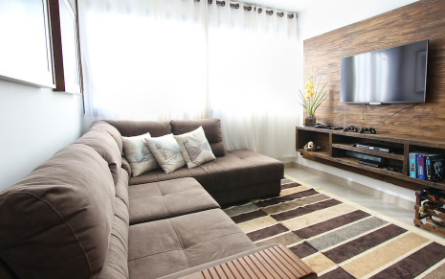Furnishing to the Construction or Improvement of a Condominium Project?
Here’s a Critical Question to Answer Before You File Your Mechanic’s Lien
There are important questions to answer before filing a mechanic’s lien. Where’s the project, who’s the owner, who’s your customer, what’s your claim amount, do you have back up documentation, etc. If you need to proceed with a mechanic’s lien on condominiums, there’s at least one more question to add to the list: Did you improve a unit or a common area?
Improving a Unit or Improving a Common Area?
Condominiums are comprised of two different parts: units & common areas. Units are typically individual housing spaces. Each unit is assigned its own distinct APN and is owned or leased exclusively by an individual owner. Common areas are any space except the individual units. Common areas may include hallways, elevators, a club house, landscaping and parking lots, and are typically owned by the condominium association.
A mechanic’s lien can only be filed against the property improved. Therefore, if you furnish to the improvement of a unit, and you are unpaid for furnishings, your lien should be filed on the individual unit.
Unlike individual units, the common elements of a condominium do not have APNs. Let’s say you provide carpeting for the building hallways, outside of the individual units. If you are unpaid for the carpeting, your lien won’t be filed against one unit; rather it will be filed against all.
How Do I Know If I Furnished to Units or Common Area?
Your records (purchase order, invoices, contract etc.) should indicate whether you are furnishing to individual units or a common area. As your work progresses, keep detailed notes regarding which units were improved — it will save you a great deal of time down the road!
Can’t I Just File a Lien on Everything?
Generally, no, as I mentioned before, your lien rights are limited to the spaces that were improved. But I did say “generally.”
Here’s commentary from R. Thomas Dunn from his article Condominium Mechanic’s Liens.
“Some states, including California, Virginia, and Colorado, provide a mechanism to afford a mechanic’s lien remedy to contractors improving common areas of condominiums. Their approach, which is also recommended by the Uniform Construction Lien Act, is a blanket lien approach…. Apportionment of the value performed for common areas and the units is required. If such a blanket lien is placed on the common areas, a unit owner may discharge the lien by paying the particular sum attributable to his unit. Cal. Civ. Code § 1369.
Similarly, under the Uniform Construction Lien Act; a claimant may file a blanket lien, which attaches to the individual units as opposed to the common elements… The blanket lien becomes a fractionalized lien against each unit for that unit’s proportional share of the cost.”
Liens Could Be Expensive & Take Time
A quick note. If you improved several individual units, and statute requires a separate lien for each unit, your typical lien fees won’t apply. There will likely be additional title work, notifications, and recording fees, plus it will probably take more time to prepare. Before you file a lien for a condominium project, seek a legal opinion. Don’t wait until the last minute & be sure to provide the attorney with all back up documentation.
